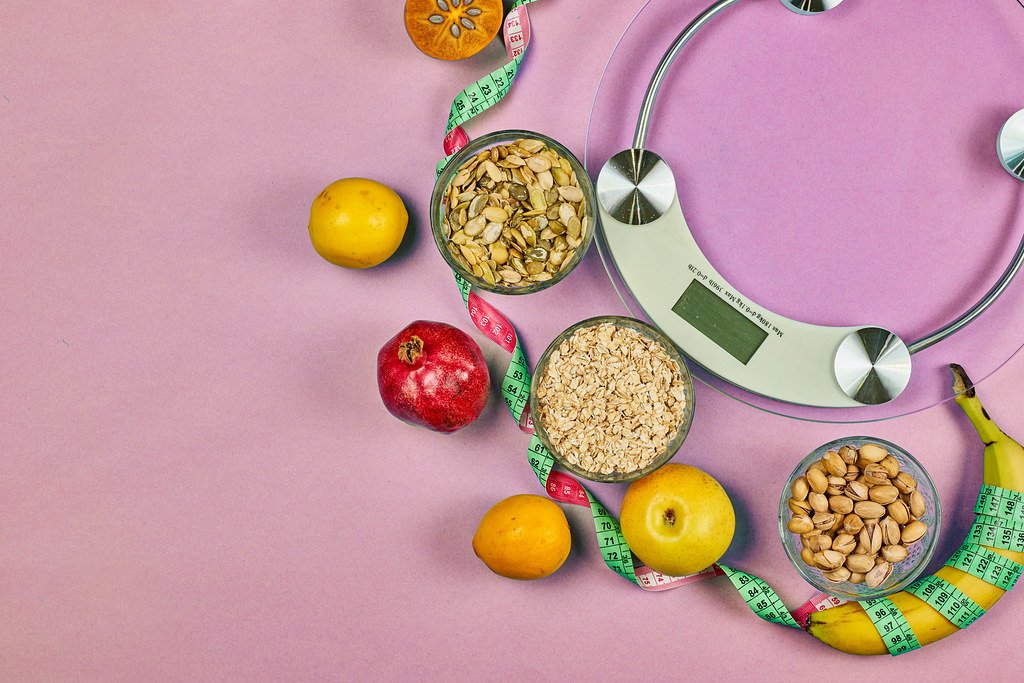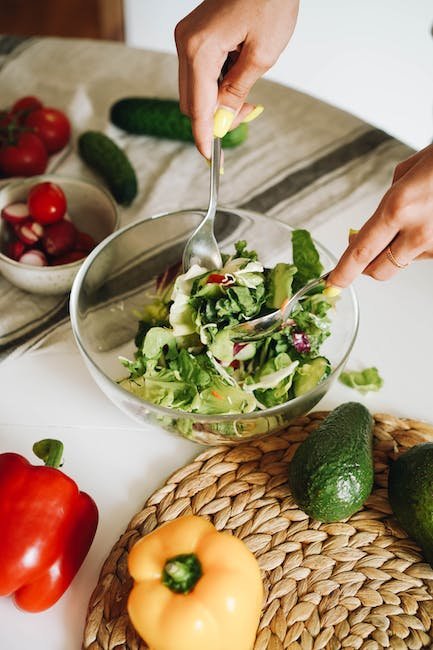Puppies, those fluffy bundles of joy, are not only adorable companions but also eager learners. From the moment they wag their tiny tails into our lives, we become their devoted guides on the path to becoming well-behaved members of society. Yet, amidst the whirlwind of house training, obedience classes, and daily adventures, there is one vital aspect that often slips under the radar – nutrition. Surprisingly, what goes into their little bowls might hold the key to unlocking their full potential in training. So, let us embark on a journey into the world of puppy nutrition, uncovering the intricate link between what they eat and how they learn, all in pursuit of raising furry geniuses with wagging tails and attentive ears.
Table of Contents
- Understanding the Relationship Between Nutrition and Puppy Training
- The Importance of Balanced Nutrition for Optimal Puppy Development
- Key Nutrients that Support Cognitive Function and Learning in Puppies
- Choosing the Right Diet for Effective Puppy Training
- Q&A
- Key Takeaways

Understanding the Relationship Between Nutrition and Puppy Training
Importance of Nutrition in Puppy Training
It might surprise you to learn that nutrition plays a significant role in the effectiveness of puppy training. Just like with humans, a puppy’s diet can greatly impact their behavior and ability to learn. Providing your furry friend with a well-balanced and nutritious diet is crucial for their overall well-being and cognitive development.
Benefits of Proper Nutrition:
- Improved Focus: A puppy that receives adequate nutrition is more likely to have enhanced concentration and focus during training sessions. Essential nutrients like omega-3 fatty acids, found in foods such as fish and flaxseed, are known to support cognitive function.
- Strengthened Immunity: A strong immune system is vital for your puppy’s health and their ability to adapt to new situations. Proper nutrition ensures they receive the necessary vitamins and minerals, like vitamin C and E, which aid in their immune response.
- Increased Energy Levels: Good nutrition provides the necessary fuel for your puppy’s energy levels. Quality protein sources, such as chicken or turkey, help build lean muscles and sustain their vitality levels throughout the day, enabling them to participate actively in training exercises.
By understanding the link between nutrition and puppy training, you can optimize your training sessions for better results. Remember, a nourished puppy is a happy and attentive one. So, ensure you provide them with a balanced diet and wholesome treats to support their learning journey!

The Importance of Balanced Nutrition for Optimal Puppy Development
Providing your furry friend with a healthy, well-balanced diet during their early stages of development is crucial for their overall well-being. A puppy’s nutrition plays a fundamental role in their growth, maintenance, and development of organs, bones, muscles, and their immune system.
Key points to consider for optimal puppy nutrition:
- Protein Is Essential: High-quality protein sources are vital for building and repairing tissues. Incorporating lean meats, poultry, fish, and legumes into their diet ensures proper muscle development.
- Vitamins and Minerals: Proper amounts of vitamins and minerals, such as calcium and phosphorus, are necessary to support healthy bone development and prevent deficiencies or abnormalities.
- Healthy Fats: A balanced blend of omega-3 and omega-6 fatty acids aid in brain development and promote a shiny coat. Sources like fish oil, flaxseed, and poultry fat are beneficial for your pup.
- Avoid Overfeeding: Overfeeding can lead to obesity and other health problems, so it’s important to follow feeding guidelines provided by your veterinarian and adjust accordingly based on your puppy’s growth and activity level.
Remember, when it comes to your precious pup’s nutrition, it’s crucial to ensure a well-balanced diet that meets their specific needs. Consulting with a veterinarian or professional pet nutritionist can go a long way in guaranteeing optimal puppy development and long-term health.
Key Nutrients that Support Cognitive Function and Learning in Puppies
Proper nutrition is essential for the development of a puppy’s cognitive function and learning abilities. Providing key nutrients in their diet can help support brain growth, memory formation, and overall cognitive health. Here are some crucial nutrients that play a vital role in supporting your furry friend’s brain development:
- Omega-3 Fatty Acids: Found in fish oil, flaxseeds, and chia seeds, these fatty acids are essential for brain health. They promote the growth of neurons and help improve memory and cognitive function.
- Vitamin E: This powerful antioxidant protects brain cells from oxidative damage and supports healthy brain development. Foods rich in vitamin E include spinach, almonds, and sunflower seeds.
- B Vitamins: Including B6, B9 (folate), and B12, these vitamins play a crucial role in brain function and cognitive development. They support the production of neurotransmitters, enhance memory, and improve overall brain health. Great sources of B vitamins include eggs, liver, and leafy greens.
- Iron: Iron is essential for transporting oxygen to the brain, aiding in cognitive function and preventing mental fatigue. Ensure that your puppy’s diet includes iron-rich foods like lean meats, legumes, and leafy vegetables.
- Choline: An essential nutrient that supports brain development and memory formation. It can be found in eggs, liver, and certain grains. Including choline-rich foods in your puppy’s diet can enhance their learning abilities.
Remember, a balanced diet that incorporates these key nutrients is crucial for supporting your puppy’s cognitive function and learning abilities. Always consult with your veterinarian to determine the appropriate diet and nutrient requirements for your pet.
Choosing the Right Diet for Effective Puppy Training
Feeding your puppy a balanced and nutritious diet is not only crucial for their overall health, but it can also have a significant impact on their training success. When it comes to training your furry companion, choosing the right diet plays a vital role in ensuring they have the energy, focus, and cognitive ability to learn and retain commands.
To optimize your puppy’s training potential, consider the following factors when selecting their diet:
- Quality Ingredients: Look for a diet that contains high-quality protein sources, such as real meat, to support muscle development and provide essential nutrients.
- Brain-Boosting Nutrients: Opt for a diet rich in omega-3 fatty acids, DHA, and antioxidants to promote healthy brain function, improve cognitive abilities, and enhance their ability to learn new commands.
- Proper Portion Control: Avoid overfeeding your puppy, as excess weight can hinder their training progress and cause health issues. Follow the recommended feeding guidelines and consult with your veterinarian for guidance.
- Consistency: Stick to a consistent feeding schedule to establish routine and ensure your puppy’s energy levels remain balanced throughout the day, aiding in their ability to concentrate during training sessions.
By choosing a diet that meets these criteria, you are setting your puppy up for success in their training journey. Remember, a well-nourished and happy puppy is more likely to be engaged, focused, and eager to learn!
Q&A
How does nutrition affect puppy training?
Nutrition plays a crucial role in puppy training as it directly impacts their mental and physical capabilities. A well-balanced diet provides the essential nutrients needed for optimal brain function and energy levels, resulting in improved focus, memory, and overall cognitive abilities during training sessions.
Which nutrients are important for puppy training?
Several key nutrients are essential for puppy training, including omega-3 fatty acids, antioxidants, and vitamins such as B12 and D. Omega-3s support brain development and cognitive function, antioxidants help protect against oxidative stress, while B12 and D vitamins contribute to nerve health and improved motor skills.
Are there specific foods that aid in puppy training?
Yes, certain foods are particularly beneficial for puppy training. Incorporating foods like salmon, sweet potatoes, blueberries, and spinach into their diet can provide a rich source of omega-3s, antioxidants, and important vitamins, promoting better focus, memory, and overall learning ability.
How does a balanced diet support behavior during training?
A balanced diet helps stabilize a puppy’s blood sugar levels, which directly impacts their behavior during training. By avoiding spikes and crashes in their energy levels, a well-fed pup is more likely to remain calm, attentive, and responsive to commands, leading to more effective and successful training sessions.
Can poor nutrition hinder puppy training progress?
Absolutely. Poor nutrition can negatively affect a puppy’s ability to focus, learn, and retain information during training. Without the right nutrients, their brain development may be compromised, hindering their capacity to understand and respond to commands, ultimately slowing down their training progress.
Is it possible to supplement a puppy’s diet for better training?
Yes, it is possible to supplement a puppy’s diet with specific nutrients that aid in training. Supplements containing omega-3 fatty acids, such as fish oil, or multivitamins tailored for puppies can be beneficial. However, it’s always advisable to consult with a veterinarian before introducing any supplements to ensure they are safe and suitable for your puppy’s individual needs.
Are there any food-related tips to enhance puppy training?
Yes, there are a few tips to enhance puppy training through food. Utilize treats made from high-quality, nutrient-rich ingredients as rewards during training sessions. Additionally, consider feeding your puppy in puzzle toys or food-dispensing devices, which engage their problem-solving skills and provide mental stimulation, further supporting their training progress.
Key Takeaways
In the vast tapestry of puppy training, nutrition emerges as an unexpectedly powerful thread, interwoven with the very fabric of success. As we have delved into the relationship between food and training, a fascinating realm has unfurled before our eyes, revealing the hidden secrets that lie behind that adorable wagging tail and those eager, puppy eyes.
But alas, we reach the end of our journey together, dear reader. We have traversed the winding paths of dietary choices, exploring the intricate dances of nutrients and their impact on our furry companions. From the building blocks of proteins that help craft lean muscle, to the delicate balance of carbohydrates that fuel energetic play sessions, nutrition has silently held the reins of progress, guiding our pups to their full potential.
Through our exploration, we have learned that a well-balanced diet can transform even the most rambunctious fluffball into a well-mannered, disciplined companion. It is within this nurturing web of sustenance that the seeds of behavioral development are sown, shaping the very core of your puppy’s training journey.
Whether it be the power of omega-3 fatty acids enhancing cognitive abilities or the magic of antioxidants fostering a sharper mind, the influence of food on training cannot be overstated. A symphony of vitamins and minerals orchestrates a harmonious blend of focus, attention, and receptivity, laying the groundwork for effective learning and precise execution.
Therefore, it is incumbent upon us, as devoted puppy parents, to critically consider the impact of nutrition when embarking on the glorious endeavor of training. As we carefully select each morsel that crosses their eager lips, we gift them not only physical vitality but the tools to conquer the challenges that lie ahead.
So let us not underestimate the power of nutrition in shaping the future of our fur-clad companions. Let us embrace the common thread that connects the world of nutrition and puppy training, gracefully intertwining them to weave a tapestry of success.
As we bid farewell, may these newfound insights serve as guideposts on your quest to raise a well-behaved, joyful pup. Remember, dear reader, that this is merely the beginning of a beautiful partnership, filled with laughter, learning, and unconditional love. Together, as we nourish both body and mind, our furry friends will flourish and thrive in a harmonious symphony of training and nutrition.
As an affiliate, my content may feature links to products I personally use and recommend. By taking action, like subscribing or making a purchase, you’ll be supporting my work and fueling my taco cravings at the same time. Win-win, right?
Want to read more? Check out our Affiliate Disclosure page.